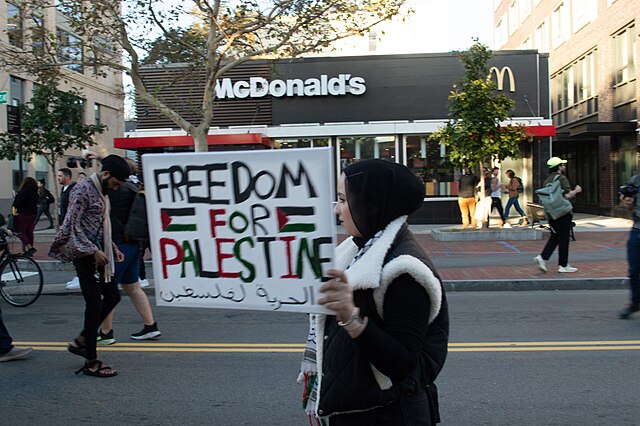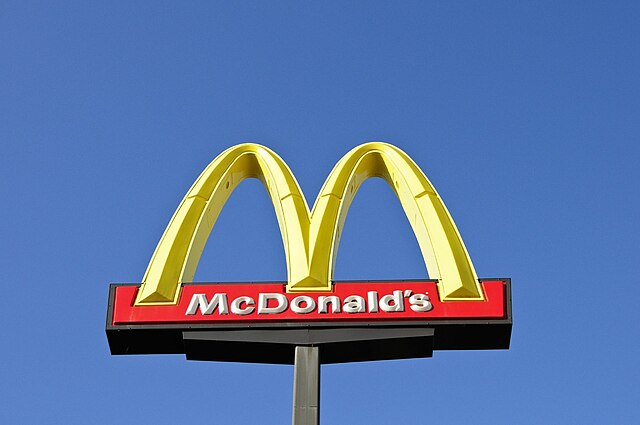McDonald's Acquires Israeli Franchise Amid Boycott

Introduction
McDonald’s, the global giant in fast food, is navigating a complex scenario as it moves to take control of its operations in Israel amidst widespread protests. The decision to acquire its Israeli franchise comes at a time of heightened tension, particularly in regions with significant Arab and Muslim populations, where many people are boycotting McDonald’s due to perceived support for Israel. This backlash stems from the Israeli franchise’s controversial decision to provide free meals to soldiers following the devastating Hamas-led terror attacks on October 7, 2023, which resulted in significant loss of life and international condemnation.
On April 4, 2024, Omri Padan, CEO and owner of Alonyal Limited, the company that operates McDonald’s in Israel, announced a significant development—the agreement to sell Alonyal to McDonald’s Corporation. (Corporate McDonald’s)

McDonald’s Corporate Structure
McDonald’s operates under a unique business model based on franchising, where individual operators are granted licenses to run and manage their own McDonald’s outlets. In Israel, the franchise rights for McDonald’s are held by Alonyal Limited.
Omri Padan, CEO and owner of Alonyal Limited said in his statement “For more than 30 years, Alonyal Limited has been proud to bring the Golden Arches to Israel and serve our communities. We’ve grown the brand to be the leading and most successful restaurant chain in Israel and are grateful to our management, employees, suppliers, and customers who made this possible. We are encouraged by what the future holds.”(Corporate McDonald’s)
Roots of the McDonald’s Boycott
McDonald’s decision to purchase all 225 restaurants comprising its Israel franchise comes against the backdrop of months of significantly reduced sales amid escalating tensions surrounding the Israel-Hamas conflict. The pro-Palestinian boycott action has taken a toll on McDonald’s operations, leading to a marked decline in revenue. Beyond mere boycotts, the situation has escalated into protests, vandalism, and property destruction targeting McDonald’s establishments.
In Lebanon, protesters have resorted to attacking and vandalizing local McDonald’s restaurants, while crowds of pro-Palestinian demonstrators in London have encircled some branches, vocally expressing their discontent with chants of “shame on you.” These incidents underscore the intensity of public sentiment surrounding McDonald’s perceived stance on the Israel-Hamas conflict and highlight the challenges faced by the company in maintaining its operations amidst geopolitical turmoil. (CNBC)
Analytical Insights, Statistical Trends, and Market Impacts
February marked a significant milestone for McDonald’s, although it was met with concern, as the corporation reported its first quarterly sales shortfall in nearly four years. This downturn was primarily attributed to underwhelming sales growth within its international business division, a trend worsened by the ongoing conflict dynamics in the Middle East. (Reuters)
The impact of the boycott was not limited to the region alone but portrayed itself across global markets, resulting in diminished sales figures in predominantly Muslim nations like Malaysia, Indonesia and Pakistan and even some European countries such as France. ()

Mcdonald’s Strategic Decision Making
Despite the challenges, McDonald’s remains committed to the Israeli market, expressing a desire to ensure a positive experience for both employees and customers moving forward. The terms of the acquisition deal have not been disclosed though, indicating a level of sensitivity surrounding the transaction.
The acquisition agreement is subject to certain conditions, with the closing anticipated in the coming months. McDonald’s hopes that by bringing its Israeli operations under its direct control, it can rebuild its reputation in the Middle East and meet its sales targets once again.
As McDonald’s embarks on this strategic move, the eyes of the world remain fixed on how it navigates the delicate balance between business interests and geopolitical sensitivities in a region fraught with tension and conflict. Only time will tell whether this acquisition marks a turning point in McDonald’s fortunes in the Middle East or adds further complexity to its global operations.
Check out our Blog here!


